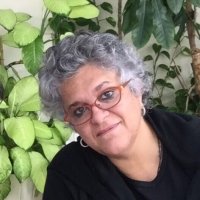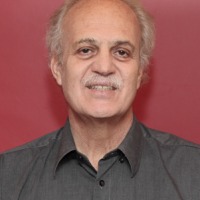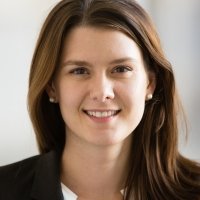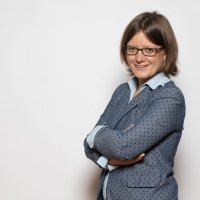WEBCAST | Where Deforestation and Disease Collide: Sustainability and COVID-19 in the Brazilian Amazon
On May 14, the Brazil Institute, in partnership with the Environmental Change and Security Program, hosted an update on the situation in Manaus, followed by a conversation on the impact of COVID-19 on deforestation and sustainability in the Brazilian Amazon, and the implications this could have for us all.
Selected Quotes:
Denis Minez
"Officially, there have been a few hundred deaths recorded. But generally, Manaus is a city that has about 30 burials per day, and the number of excess deaths, the number of people who have died above normal, has been between 1,900 and 2,500, according to burial records in the city. So that is basically equivalent to 0.1 percent of the population—one in 1000 people in this city have died. I know of no family in Manaus who has not been touched by this tragedy."
"The infectologists here in the state of Amazonas estimate that Manaus has moved faster than anywhere else that they have seen and we already have between 35 percent and 40 percent of the population already infected… Now, also, this epidemic is moving to the interior of the state of Amazonas."
"In terms of the economy, which will have severe implications for health, the industrial district of Manaus—which is the heart of Manaus' economy—is mostly closed. I've talked to two companies, Honda and Samsung... They are both closed, partially because of COVID-19, which has stricken so many of their employees, and so many of their managers, that they are quite unable to open, and partially because their supply chains around the world are a mess. Even though parts of it are reopening in China, parts of it are closing elsewhere, so they're not able to assemble all the parts. They believe that it will take at least a month before they are able to reopen."
"To the interior, that's a more complicated situation. There are boats that generally go from Manaus to most of the cities in the interior, most cities do not have air link or road link, and these boats are leaving Manaus basically full, completely full of people, and returning empty, which to me means that people are moving back to the interior in order to isolate, which is a tragedy because they are likely taking [the virus] to the interior.”
"Now the implications for state and city financial health, in my opinion, are quite dramatic. In the state of Amazonas, our monthly budget is about $R 1.3 billion. What I hear from state finance officials is that in April, the income was okay but in May it's down by about 40 percent. So, they are unlikely to be able to pay personnel in May, let alone all the other expenses that a state government has. Same for city government, for city governments about half of its expenditures are personnel, and they're going down by about 45 percent. It's unclear to me what will happen when the government is unable to meet these expenses and also it's unclear to me what they will choose to cut. I would guess environmental concerns will not be at the top of their heads during this period."
“The budget of INPA, the national research center for the Amazon, is a little less than $10 million per year. $10 million. It's ridiculous. ... We have some people [scinetistis] here, but definitely not enough to create a green revolution, a green biotech revolution, or anything like that. The game of biotech is not a game where you have the Amazon and so you have an advantage. It is a game of brains, and we just don't have them and we haven't produced enough and we are definitely not producing today... Anyone who wants to pressure, the outside world, on the Amazon, send us brains, send us knowledge, send us people to do science.”
Izabella Teixeira
“[W]e need to propose not only good answers during the [COVID-19] crisis, but after the crisis, and we have the economic crisis that is coming but also climate change and biodiversity crises that still are here."
"The informality that our economy is facing today, we have about 40 or 41 percent of Brazilians who used to work in the informal world and this really shows to us, and brings to [forefront] of our challenges how we will address solutions considering informality and inequality, and in the Amazon this is deeper than in other regions of the country."
"We have a fragmented governance model today in Brazil…[and] environmental players are not a part of this set of people that have the responsibility to address solutions in Brazil."
"The strategy that the government in Brazil adopted recently puts in checkmate our alliances, not only considering civil society players but also international players, the international community. So, Brazil adopted, unfortunately, in my opinion, in the last months, strategies and policies to go against traditional alliances on environmental protection and put in checkmate assets, like protected areas that have been declared, the most important program that we call ARPA."
"Behind the scenes we have in checkmate climate change governance, also. The climate change agenda, that was very important to address not only the end of deforestation but to address all new economies, like bioeconomy or the standing forest economy or the solutions for the Amazon, this agenda that was so powerful for Brazil—and Brazil has a strategic role in the world and international cooperation as a soft power—for our country, this is over."
"My feeling is that we have tools, we have capacity, science, all the solutions we have in Brazil. What we need is to bring it together and have a new driving force to bring society democracy and don't forget that probably, in my opinion, we need a new green [enlightenment] in the Amazon and also in Brazil, we need to bring rationality again to the floor."
"Climate change is a responsibility not only for developed countries, everybody must address solutions if you want to tackle climate change."
“You have a huge opportunity to have a strategic alignment [between the United States and Brazil] based on the future not based on the past, and based on rationality...we need to understand how we can play together.”
Carlos Nobre
"One perhaps positive aspect that we are getting out of this pandemic is that science, at least science in relation to the pandemic, health science, is becoming much more credible…This, I hope, will reverse a long-term trend of growth of the anti-science movement that we have been seeing for a decade in the world. So, let's hope that science will become credible and will really play a much more important role for a sustainable planet."
"The Amazon is very near an irreversible tipping point. We are seeing in the Amazon this perverse combination of anthropogenic drivers, this simultaneous and synergistic combinations of global warming not only warms up the temperature in the forest, 1.4 degrees [Celsius] already, but also increases the severity of and frequency of extremes, like of very extreme draughts."
"The Amazon forest is very resilient to fires, but it is becoming much more vulnerable not [only] because of a warmer climate, because of fragmented forests, and because of manmade fires. So, all these three drivers together put the Amazon forest at the brink of this tipping point."
"Scientific observations are showing 20, 30 percent of southeastern Amazon [is] at the risk of this tipping point—we call it scientifically a ‘savannization.’ If that tipping point is exceeded, we are going to have perhaps 60, up to 70 percent of the whole forest turn into a dry savannah. In [the] southeastern Amazon we are very close to that tipping point, we are seeing the tremendous increase in the duration of the dry season, three to four weeks longer, much warmer—2 to 3 degrees [Celsius] warmer—temperatures in the dry season, [and] much less water recycling… This is all observational. In areas in southern Amazon, the forest is becoming a big carbon source, not a big carbon sink."
"If that happens over a few decades, perhaps three to five decades, it is the worst perturbation in the ecological balance which keeps millions of species of microorganisms, of viruses, bacteria, and potential pathogens. If we perturb that equilibrium, also the health of the humans and the health of the planet will be severely threatened for centuries to come."
"Sustainable consumption can be driven by citizens, so we have to make it really high profile... if people really pay attention to what they buy from Brazil, whether it was driving deforestation, fires, I think it will drive deforestation to a much lower level."
"We need an MIT for the Amazon, an Amazon institute of technology...to bring the capacity to develop the science and technology for a standing forest bioeconomy [to the Amazon]."
Thomas Lovejoy
"I think one of the important things to bear in mind is that in fact the COVID-19 virus came from environmental perturbation and from wildlife trade and wildlife markets, and I think there is pretty general agreement on that. So, it is in part a consequence of our mismanagement of our relationship with the natural world, and there has also been some really unfortunate governmental inadequacy in a number of places"
"I'm acutely aware that there are pathogens in the entire Amazon and as we continue to push it back and damage it and teeter on the edge of the tipping point, It is going to magnify the probability that those will be new sources of possible pandemics. It's not a pretty picture either economically, or environmentally or in terms of human wellbeing, and it comes at a time where the international order is weakened and every country that might've been a source of resources to help deal with this is coping with their own problems."
"I worry that my own government, [and] the Brazilian government, will look for quick things they can do to jumpstart the economy, and that usually means going back to really old fashioned ideas called infrastructure… just throwing infrastructure at this problem will not solve it, in fact it will only make it worse."
“[INPA] is a wonderful institution but [was] never adequately funded….all [eight Amazon nations] have talent that they didn’t have 30 years ago, and I think finding ways to nurture all of that in a very thoughtful and pragmatic direction could be a really serious contribution.”
Speakers




Introduction

Senior Director, Albright Stonebridge Group
Moderator

Liberal Arts and Sciences Dean's Professor and Associate Professor of Political Science, Iowa State University.
Hosted By

Brazil Institute
The Brazil Institute—the only country-specific policy institution focused on Brazil in Washington—aims to deepen understanding of Brazil’s complex landscape and strengthen relations between Brazilian and US institutions across all sectors. Read more


Environmental Change and Security Program
The Environmental Change and Security Program (ECSP) explores the connections between environmental change, health, and population dynamics and their links to conflict, human insecurity, and foreign policy. Read more
